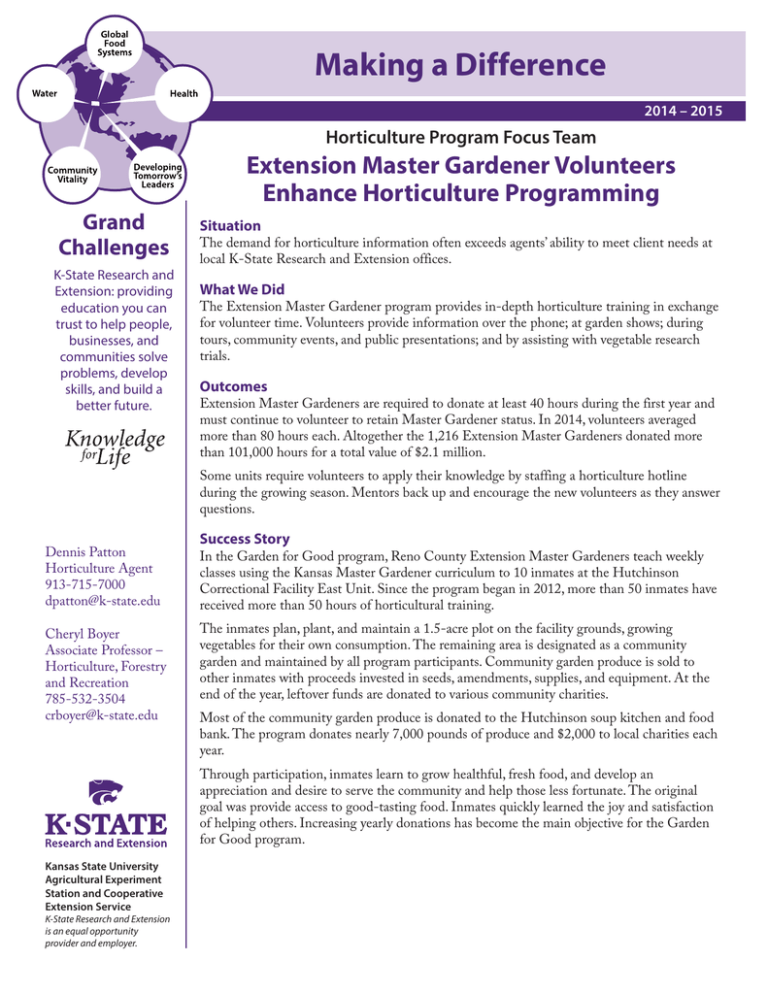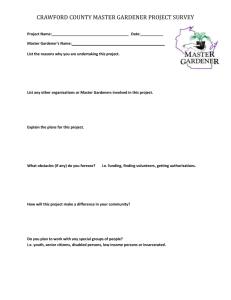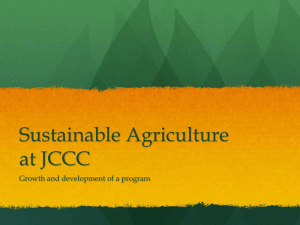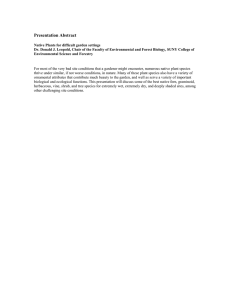Making a Difference Extension Master Gardener Volunteers Enhance Horticulture Programming Grand
advertisement

Making a Difference 2014 – 2015 Horticulture Program Focus Team Grand Challenges K-State Research and Extension: providing education you can trust to help people, businesses, and communities solve problems, develop skills, and build a better future. Extension Master Gardener Volunteers Enhance Horticulture Programming Situation The demand for horticulture information often exceeds agents’ ability to meet client needs at local K-State Research and Extension offices. What We Did The Extension Master Gardener program provides in-depth horticulture training in exchange for volunteer time. Volunteers provide information over the phone; at garden shows; during tours, community events, and public presentations; and by assisting with vegetable research trials. Outcomes Extension Master Gardeners are required to donate at least 40 hours during the first year and must continue to volunteer to retain Master Gardener status. In 2014, volunteers averaged more than 80 hours each. Altogether the 1,216 Extension Master Gardeners donated more than 101,000 hours for a total value of $2.1 million. Some units require volunteers to apply their knowledge by staffing a horticulture hotline during the growing season. Mentors back up and encourage the new volunteers as they answer questions. Dennis Patton Horticulture Agent 913-715-7000 dpatton@k-state.edu Cheryl Boyer Associate Professor – Horticulture, Forestry and Recreation 785-532-3504 crboyer@k-state.edu Success Story In the Garden for Good program, Reno County Extension Master Gardeners teach weekly classes using the Kansas Master Gardener curriculum to 10 inmates at the Hutchinson Correctional Facility East Unit. Since the program began in 2012, more than 50 inmates have received more than 50 hours of horticultural training. The inmates plan, plant, and maintain a 1.5-acre plot on the facility grounds, growing vegetables for their own consumption. The remaining area is designated as a community garden and maintained by all program participants. Community garden produce is sold to other inmates with proceeds invested in seeds, amendments, supplies, and equipment. At the end of the year, leftover funds are donated to various community charities. Most of the community garden produce is donated to the Hutchinson soup kitchen and food bank. The program donates nearly 7,000 pounds of produce and $2,000 to local charities each year. Through participation, inmates learn to grow healthful, fresh food, and develop an appreciation and desire to serve the community and help those less fortunate. The original goal was provide access to good-tasting food. Inmates quickly learned the joy and satisfaction of helping others. Increasing yearly donations has become the main objective for the Garden for Good program. Kansas State University Agricultural Experiment Station and Cooperative Extension Service K-State Research and Extension is an equal opportunity provider and employer.



